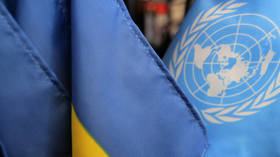Eurozone inflation hits poorest hardest – ECB

The lowest income households in the Eurozone are the most exposed to record inflation, as they have smaller financial cushions to cope with the cost of living crisis, according to European Central Bank (ECB) research published on Wednesday.
The poorest families are suffering disproportionally from price growth compared to rich households, mainly due to rising energy and food prices. According to the ECB, lower income households face a higher effective inflation rate than the richer ones and the gap is now the widest since 2006.
“Inflation in energy and food prices has major distributional effects across low and high-income households. Low-income households are more vulnerable to these price shifts, as they spend a higher proportion of their total consumption expenditure on essentials,” the researchers wrote.
Those who are well-off traditionally buy more expensive goods and branded items, so they can save money by choosing cheaper alternatives to their usual products. Less affluent households, however, usually stick to white-label products and can’t afford to save. To add to this, they have much smaller cushions to absorb the rising cost of living.
Researchers also criticized government measures to help cash-strapped families cope with soaring bills, pointing at more favorable conditions for the rich, while there is “scope for more effectively targeting” aid for the most vulnerable parts of society.
For more stories on economy & finance visit RT's business section













